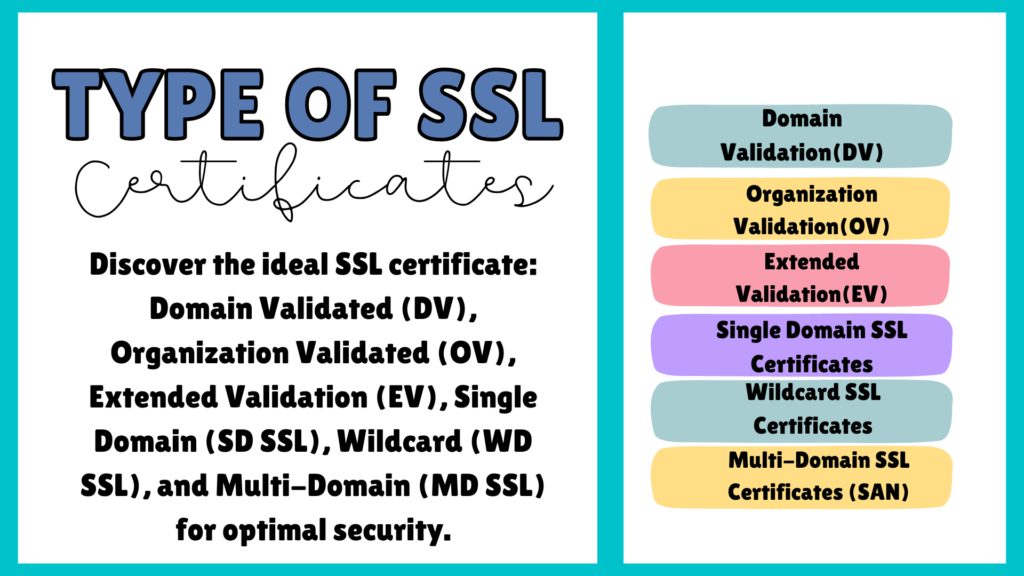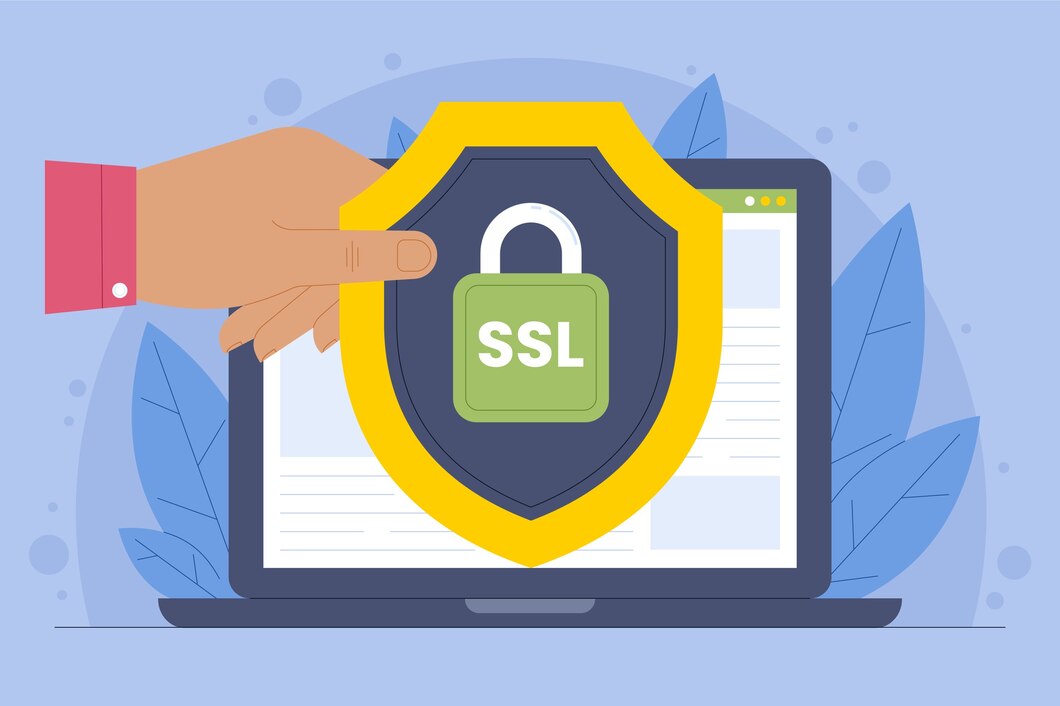How to Choose the Right SSL Certificate
Introduction
In today’s digital age, securing your website with an SSL certificate is not just an option but a necessity. SSL certificates protect sensitive information, enhance customer trust, and improve search engine rankings. However, with various SSL certificates available, choosing the right one for your needs can take time and effort. This guide will help you navigate the options and select the best SSL certificate for your website.
Understanding SSL Certificates
What is an SSL Certificate?
An SSL (Secure Socket Layer) certificate is a digital certificate that encrypts data transmitted between a user’s browser and a website. This encryption ensures that sensitive information such as passwords, credit card numbers, and personal details remain private and secure from potential cyber threats.
Why Do You Need an SSL Certificate?
- Security: SSL certificates provide robust encryption, safeguarding data against interception and tampering.
- Trust: Websites with SSL certificates display a padlock icon and “https” in the URL, which builds user confidence.
- SEO Benefits: Search engines like Google prioritize websites with SSL certificates, potentially improving your site’s ranking.
- Compliance: Many regulations and standards, such as PCI-DSS, require websites to use SSL encryption.
Types of SSL Certificates
Validation Types
- Domain Validated (DV) SSL Certificates
- Description: These are the most basic types of SSL certificates, verifying only the domain name’s ownership.
- Best For: Small websites and blogs that do not handle sensitive user information.
- Pros: Quick issuance, low cost.
- Cons: Basic validation and minimal trust indicators.
- Organization Validated (OV) SSL Certificates
- Description: OV SSL certificates verify the domain name and the organization’s identity.
- Best For: Business websites and organizations requiring a higher level of trust.
- Pros: Display organization details in the certificate, higher trust level.
- Cons: Longer issuance time and higher cost than DV certificates.
- Extended Validation (EV) SSL Certificates
- Description: EV SSL certificates offer the highest level of validation, verifying the domain, organization, and legal entity.
- Best For: E-commerce websites, financial institutions, and sites handling sensitive information.
- Pros: Green address bar (in some browsers), maximum trust and credibility.
- Cons: Lengthy validation process, highest cost.
Use Case / FQDN Types
- Single Domain SSL Certificates
- Description: These certificates secure a single domain name (e.g., example.com).
- Best For Websites with one primary domain without subdomains.
- Pros: Simplest and often the most affordable option.
- Cons: Limited to securing only one domain.
- Wildcard SSL Certificates
- Description: Wildcard SSL certificates secure a primary domain and all its subdomains (e.g., blog.example.com, shop.example.com).
- Best For: Websites with multiple subdomains.
- Pros: Cost-effective for numerous subdomains, easy management.
- Cons: Higher cost than single-domain certificates, single point of failure for subdomains.
- Multi-Domain SSL Certificates (SAN Certificates)
- Description: These certificates secure multiple domain names with a single certificate (e.g., example1.com, example2.net).
- Best For: Organizations managing several domains.
- Pros: Simplified management, cost-effective for multiple domains.
- Cons: Higher cost potential complexity in managing SANs.
Choosing the Right SSL Certificate
When selecting an SSL certificate, consider the following factors:
- Purpose of Your Website
- Determine the level of security and trust your website needs. An e-commerce site will require more robust validation than a personal blog.
- Budget
- SSL certificates vary in cost. Balance your need for security with your budget constraints.
- Number of Domains and Subdomains
- To secure multiple domains or subdomains, consider Wildcard or Multi-Domain SSL certificates.
- Trust Level Required
- Higher levels of validation (OV and EV certificates) provide more trust and credibility, which can be crucial for business and e-commerce websites.
Conclusion
Selecting a suitable SSL certificate is crucial for securing your website and building user trust. By understanding the different types of SSL certificates and considering your specific needs, you can make an informed decision that enhances your website’s security and credibility. At SSL Cert Shop, we offer a wide range of SSL certificates to meet your requirements. Contact us today to find the perfect SSL solution for your website.










